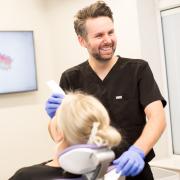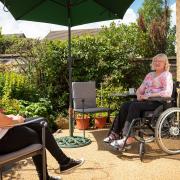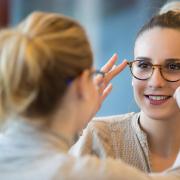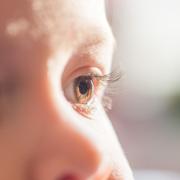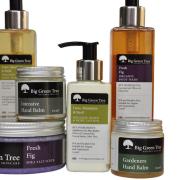Have you been wearing your sunglasses wrong?
To find out, we speak to Alex Kemp, owner of The Eye Place in Bakewell, to dispel some common myths about when and how to wear your sunglasses.
Q: Is it true I only need to wear sunglasses in summer?
A: Not at all! Most people don’t realise it but there are many health benefits to wearing sunglasses. Sunglasses can help provide visual comfort on bright days, and reduce glare from the roads, water and snow.
Q: True or false: the main reason we wear sunglasses is to block out the light?

A: False. While sunglasses can help us see in bright conditions, it’s not the only reason we wear them. Sunglasses protect our eyes against harmful UV rays. We all know that UV rays are harmful to the skin, which is why we wear sunscreen, but not everyone realises the damage it can also do to your eyes.
Overexposure to UV radiation can also contribute to the development of long-term eye conditions such as macular degeneration and cataracts.
Q: Is it right that children’s eyes don’t need as much protection?
A: No, children’s eyes are actually at the greatest risk of UV damage. The WHO (World Health Organisation) estimate that as much as 80 per cent of a person’s lifetime UV is absorbed into the eye by the time a child turns 18. It’s vital to protect eyes from a young age, to prevent problems from occurring later on, and to encourage children to get into the habit of wearing sunglasses.
Children are also entitled to a free NHS eye exam every year, which I recommend booking, to help us detect vision problems early on.
Q: Is it true I won’t be able to find a suitable pair of sunglasses to wear when taking part in active sports?

A: Not by any means, our expert opticians can recommend the best sunglasses for any activity or purpose. We offer a wide range of sunglasses including wraparound sunglasses that provide clear vision, fit securely on your head and are often available with polarised lenses to reduce glare. They’re ideal for cyclists, runners and sportspeople, and also to use when fishing and driving. We also offer a wide range of prescription sunglasses available with almost any type of lens - single vision, bifocal or progressive.
Q: True or false, sunglasses are only available with brown lenses?
A: Again, this is false. Sunglasses are usually available with brown, grey or green lenses.
Brown lenses work well in low light conditions, ideal for driving early in the morning or late afternoon. Grey tints are great if you’re often out in the midday sun or take part in water sports, as they can block out the sun’s brightest rays.
Q: I don’t suffer any problems with my eyes, so is it true that I don’t need to worry about wearing sunglasses right now?
A: Whether you have any problems with your vision or not, it’s really important to take good care of your eyes.
I recommend investing in a high-quality pair of sunglasses that will last and offer the UV protection you need. We also advise attending an eye examination at least once every two years. Our OCT scans allow us to capture detailed images of the entire eye, enabling us to detect eye conditions in their earliest stages.
Visit the-eye-place.co.uk to book an appointment and discover 5 reasons why you should check your sunglasses' prescription.
Contact the Bakewell practice on 01629 813603 or email bakewell@the-eye-place.co.uk.
Call the Dore practice on 01144 300 028 or email dore@the-eye-place.co.uk.







